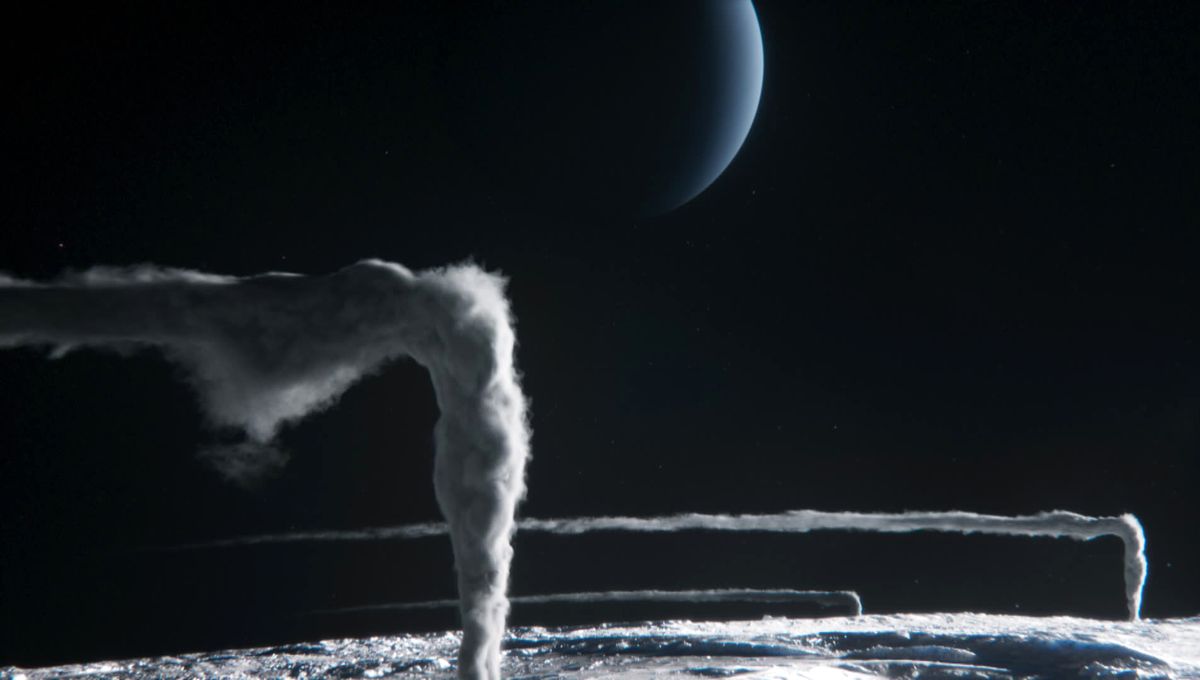
Where in space would you explore if money were no object? What burning scientific question would you want to see answered? Professor Brian Cox has a clear answer about that. He would like to send two missions out to the ice giants, Uranus and Neptune, he told us.
The distant planets have only been visited once by NASA’s Voyager 2: Uranus in 1986 and Neptune in 1989. The mission learned a lot about these two worlds, but it was a flying visit – a literal flyby – and plenty of planetary peculiarities came out of that brief encounter.
While discussing the latest science featured in his new BBC series, Solar Systems, Cox told us that though the series explores the ice giants, this is where he would like to see the next big space exploration mission go to next as there is still so much more to be discovered about these strange worlds.
If I was if I was one of these billionaires… just floating around with all my money, I would fund two missions: an orbiter to Uranus and an orbiter to Neptune.
Prof Brian Cox
“Really, the case for a big mission, an orbiter to both Uranus and Neptune, I think is so overwhelming! If I was if I was one of these billionaires… just floating around with all my money, I would fund two missions: I’d fund an orbiter to Uranus and an orbiter to Neptune,” Professor Cox told IFLScience.
They are strange worlds indeed. Uranus has a truly bizarre magnetic field and it orbits on its side, likely a consequence of a colossal impact billions of years ago. Uranus’s moon Miranda also has the biggest cliff in the Solar System, up to 20 kilometers (12 miles) in height. Neptune has ever-changing storms, and its largest moon Triton is an active world with cryovolcanos.
These worlds are explored in his new series Solar System, computer graphics bridging the gap between observations conducted 40 years ago and what we see today. Still, even regarding the least explored worlds of the Solar System, the science has not stalled. Recent observations from JWST, Hubble, and other telescopes have revealed new insights into the ice giants and the series very much embraces the latest discoveries.
For a series on the extreme and fascinating worlds of the Solar System, the show is actually very hands-on, with Cox demonstrating the science in experiments in situ in places like volcanic Iceland, linking what we know about the complicated celestial bodies with physical laws that we learn in school. For example, we discover why a boiled egg is like our Moon while a fresh one is like Saturn’s Enceladus.
That is not the start of a joke but a simple experiment that you can do at home: a regular egg is liquid inside. If you make it spin, it will wobble. A boiled egg is solid inside so will spin differently. By studying the wobbles of moons such as Enceladus, scientists were able to tell that a liquid ocean was present under its icy shell. It is the same physical principle and helped us find one of the most promising sites for extraterrestrial life in the Solar System.
“[It] was very different to sit there and do little experiments, school experiments essentially, to demonstrate… that this very central idea that the laws of nature that we see here on Earth are also applicable out there in the wider universe,” Professor Cox told IFLScience.
“It is really interesting connecting the science that members of the public have done in school or their children are doing right now to the bigger and smaller objects in the Solar System.”
From the volcanoes on Io to the moving ice mountains of Pluto via Martian dust devils, the series explores the extreme, the exceptional, and the odd in the Solar System. Catch the series every Wednesday, from October 2 to October 30, at 9pm ET/8C on PBS/NOVA. UK viewers can tune in on BBC Two starting October 7 at 9pm BST. Available on other broadcasters worldwide this October.
Source Link: “Billionaires, Fund A Mission To The Ice Giants”: Prof Brian Cox On New 'Solar System' Series